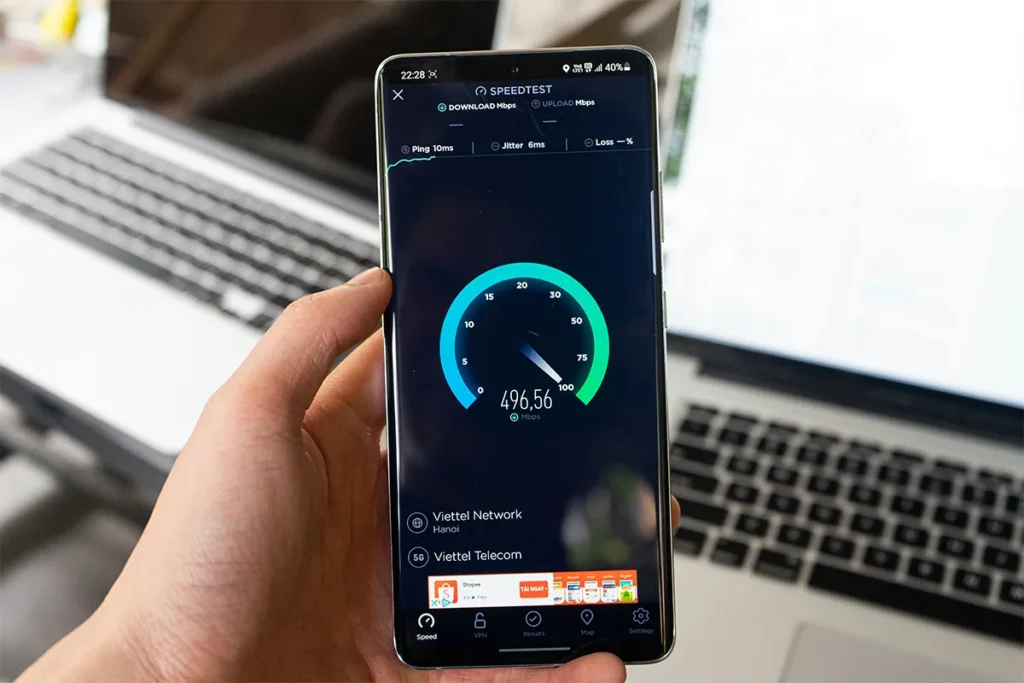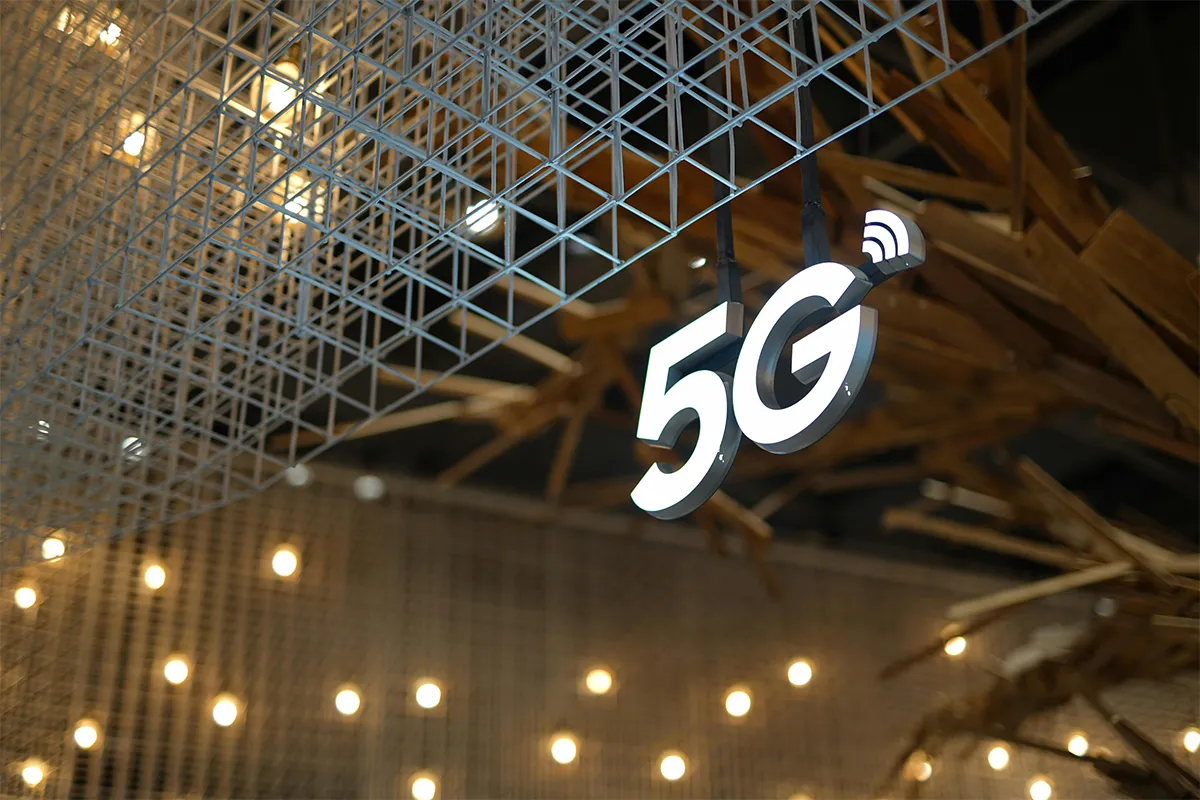The Internet is now in its most golden stages. There were days when dial-up was used to connect a PC to the internet, but now we have even space connectivity. Cellular companies provide the most convenient and cheap city-specific data packages.
Now, you do not need to keep your devices hooked to a place with landline internet providers. Just subscribe to a data plan and roam around like never before. This comparison between 4G Vs. 5G will let you know the major differences between them and enable you to make a sound decision.
Mobile networks have changed a lot over the years. The journey started with 2G, which had basic phone services. After that, 3G came and allowed web browsing and multimedia. Finally, 4G changed a lot. It made streaming videos and playing games online possible. Now, 5G is here, and it promises faster speeds and more connections. It opens new possibilities in technology and communication.
How Fast is 4G?
4G technology give us speed and dependability. With its download speeds, users can stream high-definition videos easy. Latency is the delay before data transfer. This latency was much lower than before. People can communicate without waiting long.
Currently, many people use 4G around the world. Many countries build strong networks with this technology. Major telecom companies invest in 4G infrastructure. They upgrade their systems to help everyone access high-speed internet. The global adoption rate of 4G is amazing. Most smartphones support 4G, so it is a standard for connectivity.
How Fast is 5G?
Still, as 5G comes, some questions come up. What will happen to 4G users? They will ask if they need new devices to access 5G. Can current networks handle the switch while they maintain service? These questions are important for consumers and providers. It is important to think about how this change affects everyday life and future technologies. The change to 5G could redefine convenience and efficiency in our digital world.
5G technology is the next big thing in mobile communication. It offers incredible speed. Users can download files much faster than on previous networks. The technology can reach speeds up to 10 gigabits per second. This change will enhance streaming, gaming, and downloading a lot.
Latency levels are also a key factor. 5G promises very low latency, about one millisecond. This means there is almost no delay between sending and receiving data. Users will experience smoother video calls and instant responses in online games. Imagine how this low latency changes everything, from remote work to smart city applications.
Deployment and infrastructure
Another important feature is spectrum utilization. 5G uses a broader range of frequency bands. This means it can support more devices at the same time. With more devices connected, users can enjoy stable connections. In crowded areas, like concerts or stadiums, this feature is crucial.
The rollout of 5G happens around the world. Many countries have begun to implement the infrastructure needed for this new technology. Some places have already launched commercial 5G networks. Major telecom companies lead this movement. They invest billions to expand 5G coverage. This investment shows the potential of 5G to change our lives.
Speed Comparison: 5G vs 4G

When we compare 5G to 4G, the speed differences stand out. 5G can offer download speeds that are much higher than 4G. Real-world tests show that users can download movies in seconds with 5G. On the other hand, 4G takes minutes for the same task.
Some factors can affect these speeds. Network congestion can slow down connections. Too many people use the network at once, and speeds drop. Distance from base stations matters, too. Users who are far from a signal may have slower speeds. Device compatibility is also important. Not all devices support 5G, and this limits access for some users. It is important to understand these factors if anyone wants to upgrade.
Implications of 5G Technology for Users
5G changes how people experience technology. Users enjoy faster streaming and gaming. The high speeds make it easy to watch movies. Gamers connect with others without delay. This means more fun and less frustration. Remote work become more efficient, too. Video conferencing feels smooth and clear. People connect from anywhere without interruptions. This helps teams work better together.
New innovations rise with 5G technology. The Internet of Things (IoT) grows with more devices online. Homes get smarter with connected appliances. Light bulbs, fridges, and other gadgets communicate easily. This makes life more convenient. Smart cities use 5G to improve services. Traffic lights change according to traffic flow. Public transportation runs on time. These advancements lead to cleaner and safer cities.
5G brings economic benefits too. It creates new jobs in tech sectors. Companies need skilled workers to build and maintain 5G networks. This helps local economies grow. Investment in infrastructure increases as cities build more towers. Better networks mean better productivity for businesses. Therefore, the economy thrives in the long run.
Challenges and Considerations
However, some potential drawbacks exist. Some people worry about health concerns from 5G. They question whether more radiation is safe. The long-term effects are unclear. Security problems become more serious. More devices are connected to the internet. This causes higher risks. Hackers can target smart homes and public systems. Users need to stay alert and protect their information.
The move from 4G to 5G brings some challenges. Many devices require upgrades for new technology. Users may pay a lot of money to buy new phones or equipment. Some networks do not work well with both technologies. This creates confusion for users. Overall, 5G has many benefits, but we must look at these issues.
Conclusion
Concluding the comparison, it is crystal clear that the 5G is faster than 4G. Everyone can see this difference. 5G can reach speeds that are several times faster than 4G networks. Users can download big files in seconds. Streaming videos in high quality is easy and smooth. Low latency helps users as well. This means less waiting time for online games and video calls. The experience is much better.
In the future, 5G can change technology and society. It can connect more devices than before and do not need the hacks to increase your Wi-Fi router speed. The Internet of Things (IoT) will grow with 5G. More smart devices will mean faster communication between them. This can lead to smarter homes and cities. Jobs in technology will probably grow, too. A stronger economy can develop with better networks.
It is very important to stay informed about these changes. Mobile technology always evolves. Users need to keep up with changes to know what comes next. Learning about new devices and networks can help people make smart choices. Society must also think about the effects of 5G. As we use this new technology, we should consider how it affects everyone. It is important to find a balance between innovation and safety.

